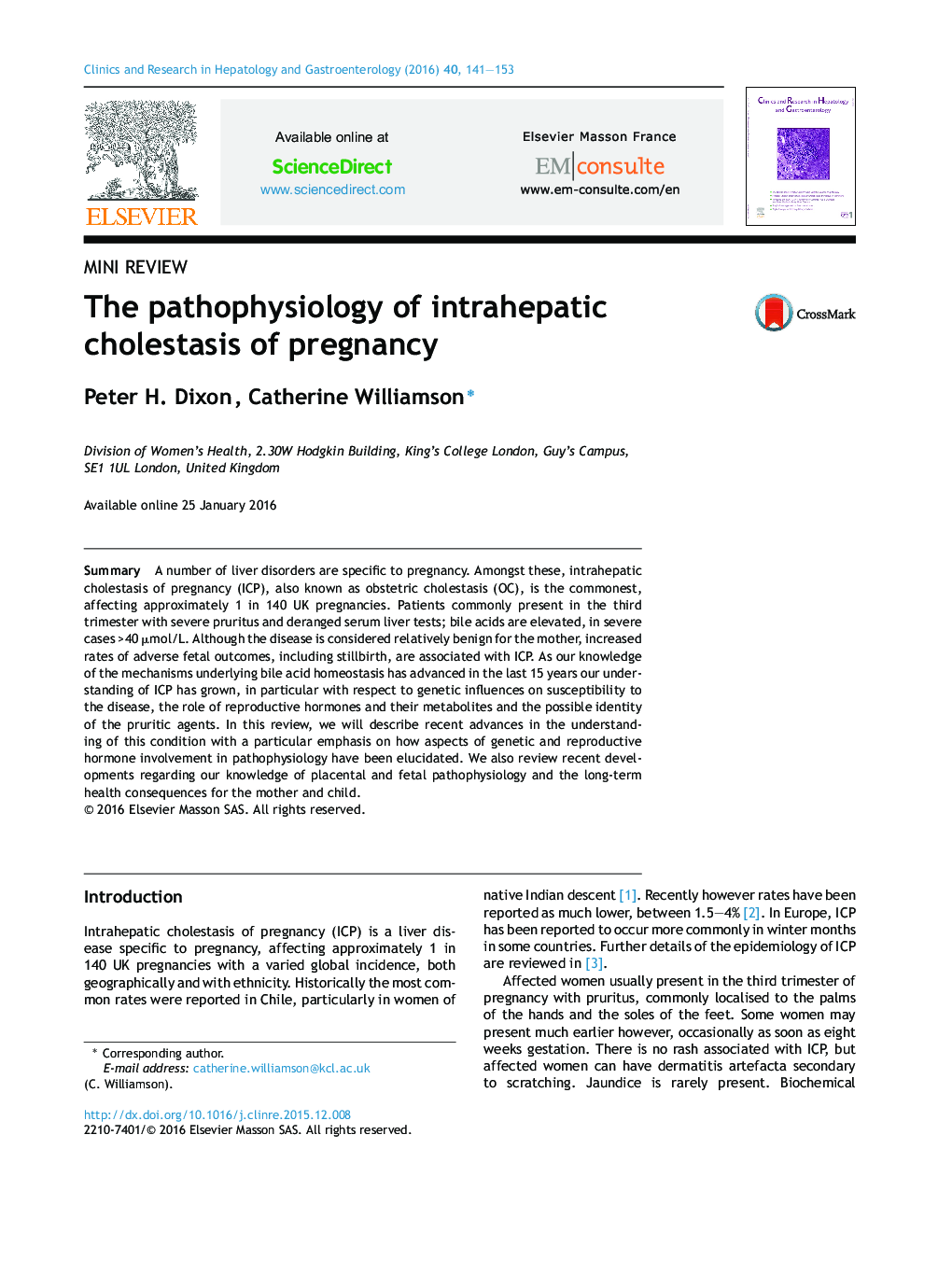| Article ID | Journal | Published Year | Pages | File Type |
|---|---|---|---|---|
| 3286021 | Clinics and Research in Hepatology and Gastroenterology | 2016 | 13 Pages |
SummaryA number of liver disorders are specific to pregnancy. Amongst these, intrahepatic cholestasis of pregnancy (ICP), also known as obstetric cholestasis (OC), is the commonest, affecting approximately 1 in 140 UK pregnancies. Patients commonly present in the third trimester with severe pruritus and deranged serum liver tests; bile acids are elevated, in severe cases >40 μmol/L. Although the disease is considered relatively benign for the mother, increased rates of adverse fetal outcomes, including stillbirth, are associated with ICP. As our knowledge of the mechanisms underlying bile acid homeostasis has advanced in the last 15 years our understanding of ICP has grown, in particular with respect to genetic influences on susceptibility to the disease, the role of reproductive hormones and their metabolites and the possible identity of the pruritic agents. In this review, we will describe recent advances in the understanding of this condition with a particular emphasis on how aspects of genetic and reproductive hormone involvement in pathophysiology have been elucidated. We also review recent developments regarding our knowledge of placental and fetal pathophysiology and the long-term health consequences for the mother and child.
